How to Check Website Authority – Tools, Criteria, and Detailed Guide
- Published on
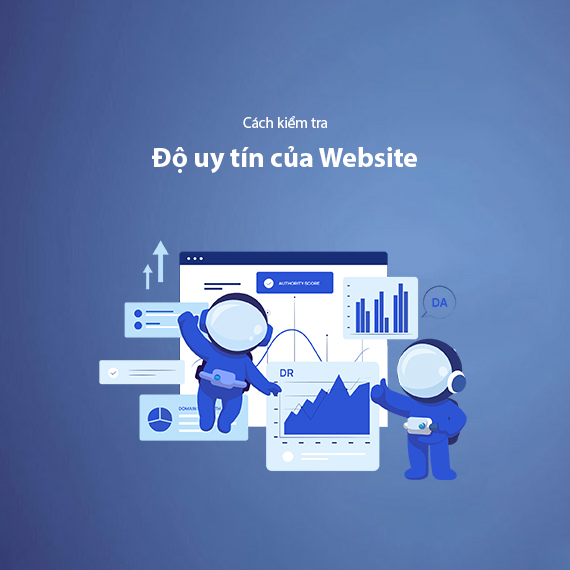
- What is Website Authority?
- Why Check Website Authority?
- Criteria for Evaluating Website Authority and Safety
- SSL and HTTPS Security
- Domain Age and Popularity
- Content Quality and Update Frequency
- User Feedback and Third-Party Reviews
- Why Website Authority Matters for SEO
- Authority’s Impact on Search Ranking
- Correlation between Authority and User Experience
- Top Tools for Checking Website Authority
- URL Void
- Sucuri
- UnMask Parasites
- PhishTank
- Dr.Web Anti-Virus Link Checker
- UnShorten.it
- VirusTotal
- Scamadviser
- Manual Steps for Checking Website Authority
- Check HTTPS and SSL
- Evaluate On-Page Information
- Look for User Reviews and Comments
- Check Other Security Factors
- Tips for Improving Website Authority (If You’re the Site Owner)
- Improve Content and Increase Depth
- Ensure Website Security
- Build Quality Backlinks
- Optimize User Experience (UX)
- Encourage User Feedback
- Conclusion
In this article, we provide a detailed guide on how to check the authority of a website using popular tools, accurate evaluation criteria, and ways to improve your website's credibility, ensuring user safety and enhancing SEO effectiveness.
What is Website Authority?
Website authority is a crucial factor in building user trust and directly impacts a website's ranking on search engines like Google. A reliable website not only ensures secure access for users but also plays a vital role in improving the site's SEO, enhancing visibility, and boosting organic traffic. With the rise of cybercrime, checking the authority and safety of a website has become essential in building or accessing websites.
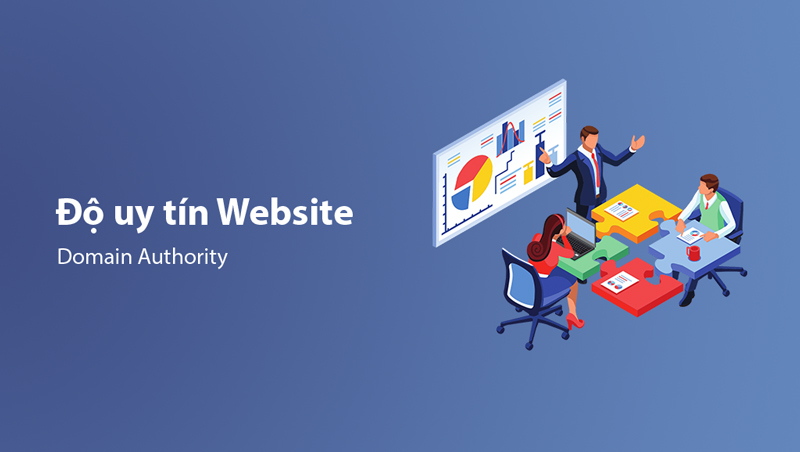
Why Check Website Authority?
Checking the safety of a website is beneficial not only for users but also for webmasters in detecting and eliminating factors that might negatively impact Domain Authority and user experience. There are numerous tools and methods to assess a website’s authority, from simple to advanced, from SSL and HTTPS checks to scanning for threats using tools like URL Void, Sucuri, and VirusTotal.
Criteria for Evaluating Website Authority and Safety
Understanding specific criteria is essential when assessing whether a website is trustworthy. The following criteria will help you check the safety and reliability of a website, protecting yourself from risks such as scams, malware, and other online threats.
SSL and HTTPS Security
One of the critical factors for ensuring website authority is using the HTTPS protocol and SSL certificate. This protocol encrypts data between the server and the user, helping protect information from attacks and increasing trustworthiness.
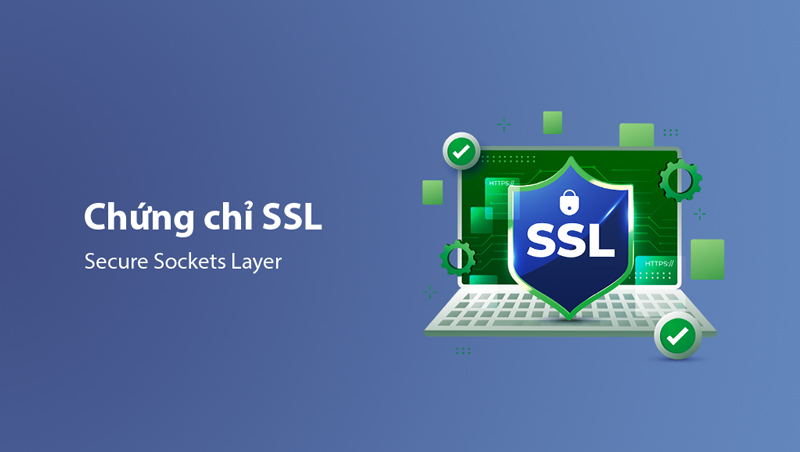
Benefits of SSL/HTTPS:
- Protects personal information: HTTPS encrypts sensitive user information, like login and payment data.
- Improves SEO ranking: Google prioritizes higher rankings for SSL-enabled websites, making it essential for your SEO.
- Enhances user trust: The lock icon in the address bar reassures users when visiting your website.
Learn more about SSL and HTTPS security to understand integration methods and its benefits for SEO.
Domain Age and Popularity
Domain age is also an important factor when assessing credibility. Older domains often indicate stability and the website owner's commitment. Moreover, popular domains like .com, .vn, and .net are generally considered more trustworthy.
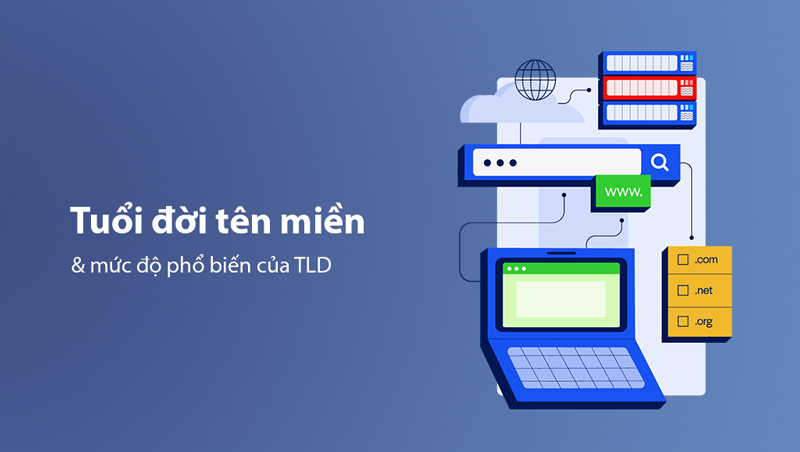
Why Domain Age Matters:
- Shows stability: An old domain indicates that the website has been running smoothly without interruptions.
- Domain popularity: Popular domain suffixes build trust and make the site easier for users to find.
Read more about how to choose a domain to establish authority and align with your target audience.
Content Quality and Update Frequency
A reputable website often invests in in-depth content, frequently updated and genuinely valuable for users. High-quality content helps retain users and boosts SEO, as search engines prioritize pages with accurate, comprehensive, and useful information.
- Enhances professionalism: Error-free, in-depth content creates a professional and trustworthy website image.
- Boosts SEO: Frequently updated content improves ranking and encourages users to return.

User Feedback and Third-Party Reviews
User feedback and reviews from credible sources are vital for evaluating a website's authority. Positive reviews from reputable review sites like TrustPilot or Sitejabber help new visitors trust the site more easily.
Benefits of User Reviews:
- Improves trustworthiness: Current user feedback shows their satisfaction and trust in the website.
- Increases conversion rates: Positive reviews help boost users' decisions to use services or make purchases from your website.
Learn more about increasing conversion rate to make your website more reliable.

By checking these criteria, you not only gain insight into website authority but also help protect users from online risks. Investing in authority and safety is not only about protecting users but is also a strategy to improve SEO rankings, attract stable traffic, and foster sustainable website growth.
Why Website Authority Matters for SEO
Website authority is a significant factor used by search engines like Google and Bing to determine a website’s ranking on search results. Maintaining a reliable website not only boosts ranking but also creates a better experience for users. Below are reasons why authority is crucial for SEO.
Authority’s Impact on Search Ranking
Google and other search engines prioritize showing trustworthy, secure websites with high-quality information. A highly authoritative website will more easily achieve high rankings, attract users, and increase traffic. This also helps the website maintain its competitive position.
- Increases chance of appearing on the first page: An authoritative site easily makes it into top search results, boosting traffic and click-through rates (CTR).
- Reduces risk of removal from search results: Untrustworthy sites with malware or poor content quality risk being rated low or even removed by Google.

Correlation between Authority and User Experience
An authoritative website not only boosts ranking but also enhances user experience. Factors like quality content, HTTPS security, and fast page loading contribute to increasing a website’s credibility. When users feel secure and satisfied with the on-site experience, they are likely to stay longer and return frequently.
Benefits of Good User Experience:
- Increases time on page: Users stay longer on safe, trustworthy sites with engaging content.
- Reduces bounce rate: Trustworthy websites typically have lower bounce rates due to the safe, appealing experience for users.
Risks of Lack of Authority
Maintaining authority helps not only improve ranking but also avoid risks like being rated low, ranking drop, or removal from search results. Sites lacking authority, with malware, or low-quality content are susceptible to being re-evaluated by Google, leading to severe consequences for traffic and ranking.
Consequences of Lack of Authority:
- Ranking drop or removal from search results: Google prioritizes user protection and will remove unsafe, untrustworthy sites from search results.
- Loss of user trust: Users may lose trust if they visit sites that are unsafe or have low-quality content.
Top Tools for Checking Website Authority
Using authority-checking tools helps ensure that your website is not only safe for users but also increases the chance to improve SEO rankings. Below are helpful tools for assessing website authority comprehensively and quickly.
URL Void
URL Void helps you check website authority by combining data from over 30 different security sources. Simply enter the site URL, and URL Void will scan and show security warnings if the site contains malware or is blacklisted by major cybersecurity organizations.
- Main benefit: Quickly detects malware and potential risks.
- How to use: Enter the website URL into URL Void, and the tool will return security and authority status results.
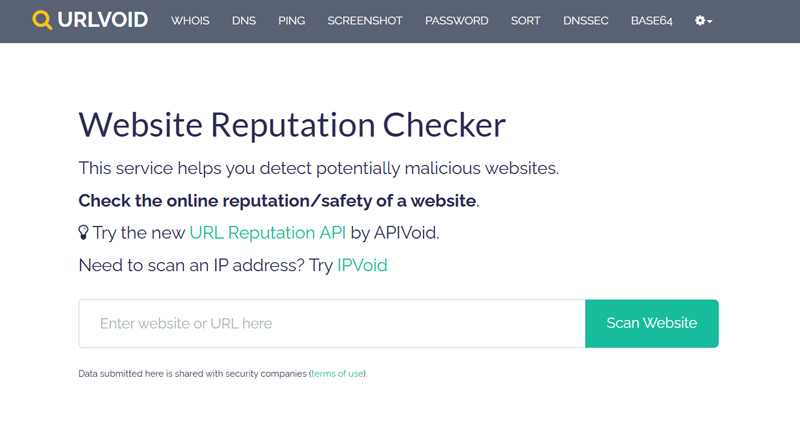
Sucuri
Sucuri is a leading tool for detecting malware and security vulnerabilities, ensuring a safe website for users. Besides malware checks, Sucuri provides detailed reports on security vulnerabilities and offers specific recommendations to improve site safety.
- Main benefit: Ability to detect and prevent malware, offers in-depth security solutions.
- SEO Application: A well-secured site will have higher credibility, helping to improve SEO ranking.
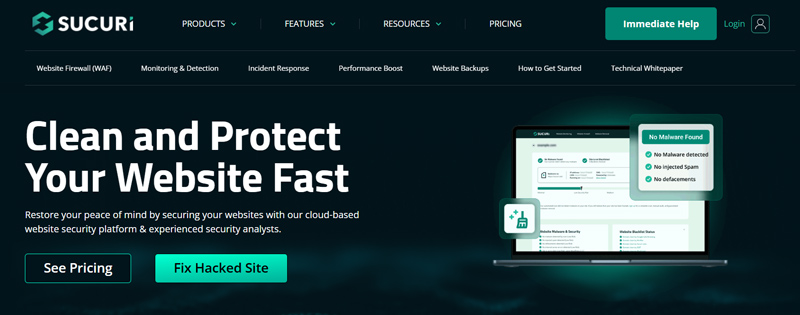
UnMask Parasites
UnMask Parasites detects junk links, suspicious code, and other unsafe elements on websites. With UnMask Parasites, you can check and remove potential harmful elements, thus building a safer website.
- Main benefit: Detects hidden malware and dangerous links.
- How to use: Enter the website URL into UnMask Parasites to scan for hidden threats.
PhishTank
PhishTank specializes in detecting phishing websites. It is an excellent solution to verify new websites or unknown links to ensure they are not dangerous for users.
- Main benefit: Prevents phishing risks, ensuring users don’t end up on unsafe sites.
- Importance: Detecting phishing sites helps your website build trust and retain users longer.
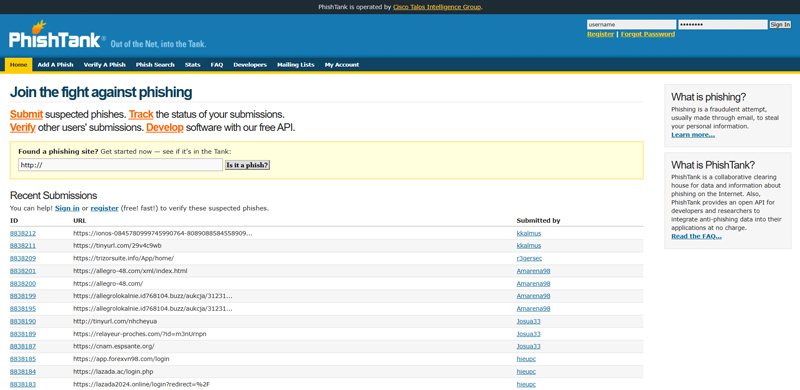
Dr.Web Anti-Virus Link Checker
Dr.Web Anti-Virus Link Checker is a useful tool integrated into popular browsers, allowing you to check links before accessing them. This tool protects users from malicious sites and unknown links.
- Main benefit: Prevents malware from suspicious links.
- Easy to use: Integrates into browsers for quick link checks before accessing.
UnShorten.it
UnShorten.it decodes shortened links, allowing users to know the actual destination before clicking. This tool is very useful for ensuring user safety, especially when shortened links are often used for phishing.
- Main benefit: Protects users from unknown shortened links.
- Practical use: Simply paste the shortened link into UnShorten.it to see the actual destination.
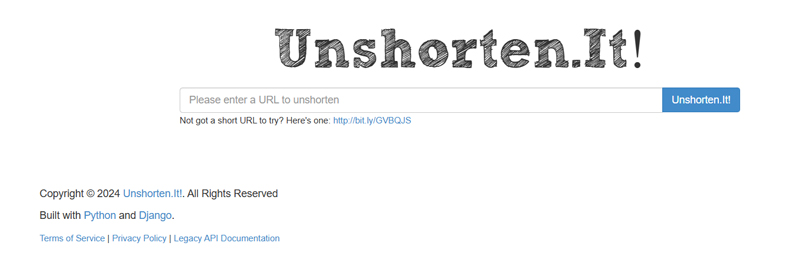
VirusTotal
VirusTotal is a free online virus scanner that allows you to check files and URLs for malware. With detailed reports, VirusTotal helps you assess the website’s overall safety.
- Main benefit: Detailed security analysis, quickly scans files or URLs.
- SEO Application: Protecting the site from malware and other threats will help maintain stable SEO ranking.
Scamadviser
Scamadviser helps you check information about domain names, IP addresses, popularity, and other factors of a website. This tool allows users to quickly identify potential risks before accessing.
- Main benefit: Comprehensive evaluation based on domain, IP, popularity.
- Importance: Helps users avoid scam websites, enhancing user security.
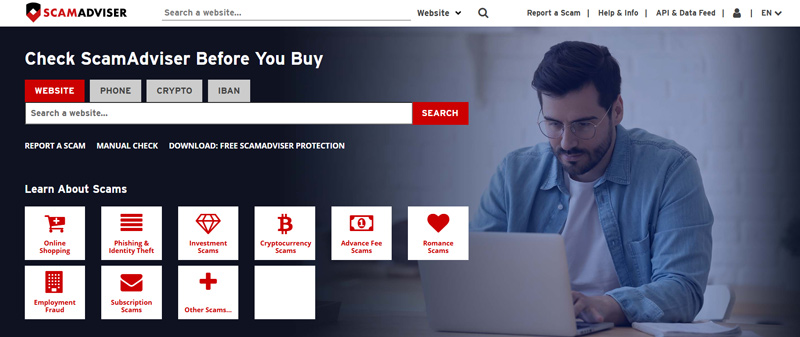
These tools provide useful solutions to check and evaluate website authority, helping you maintain a safe environment for users and improve SEO ranking. Learn more about website security to explore ways to make your website safer and more authoritative.
Manual Steps for Checking Website Authority
In addition to using automated checking tools, you can manually perform a few steps to evaluate a website's safety and authority. These methods are simple, easy to implement, and provide a visual insight into the quality of the website you are visiting.
Check HTTPS and SSL
When visiting a website, pay attention to see if the site has HTTPS and a lock icon in the browser’s address bar. This indicates that the site is secured with SSL, helping encrypt data between the user and the server, protecting personal data, and reducing data theft risks.
- How to check: Check the website's address bar; if you see a lock icon or "https://," the site has SSL. Otherwise, be cautious when entering personal information.
- Importance of HTTPS: HTTPS sites not only increase security but also help improve SEO rankings due to the security factor.
Evaluate On-Page Information
The content on a page is essential for evaluating website authority. A trustworthy website usually has high-quality content, no spelling errors, complete contact information, and no suspicious signs.
Signs of a Trustworthy Website:
- High-quality content: Error-free, frequently updated, and in-depth content.
- Clear contact information: Trustworthy sites always provide an address, phone number, and contact email for users to reach out when needed.
Look for User Reviews and Comments
Searching for user reviews and comments is an effective way to assess website reliability. You can look up information about the website on forums or reputable review sites like TrustPilot or Sitejabber to see feedback from previous visitors.
- How to find reviews: Access review sites, forums, or search the website name on Google with keywords like “review” or “rating.”
- Benefits of user reviews: Helps you better understand other users' experiences, evaluating the strengths and weaknesses of the website.
Check Other Security Factors
Other factors that you can manually check to ensure the website is safe and reputable:
- External links: If a site has too many links leading to unrelated or suspicious pages, it might indicate a less reputable website.
- Page load speed: Reputable websites typically load quickly, providing a smooth user experience.
- Interface and design: A well-designed website generally has a clear layout, easy navigation, creating a professional and trustworthy feel.
The above manual steps are simple but effective ways to help you evaluate website authority before trusting the site or entering personal information. Combining manual methods and automated tools will provide you with a comprehensive and accurate view of website reliability.
Tips for Improving Website Authority (If You’re the Site Owner)
If you’re a site owner looking to increase authority and safety, implementing the steps below will help build user trust and improve SEO ranking, ensuring sustainable growth for your website.
Improve Content and Increase Depth
High-quality content is the top factor for building trust and retaining users. Ensure that the content on your website is not only accurate but also in-depth, helpful, and frequently updated. Articles should be cited from credible sources and free of typos or grammar errors.
Tips: Create detailed content, answer popular user questions, and provide specific instructions to add higher value to your website. Investing in a quality blog is also a good way to improve website authority. Don’t forget to use internal links to direct users to other related pages, enhancing user experience and improving SEO.

Ensure Website Security
Security is crucial for enhancing website authority. Integrate an SSL certificate to protect user data and use regular malware scanning tools to detect and eliminate security risks. Ensure that all links and data on the website are encrypted to prevent risks.
Use firewalls and security plugins to prevent potential attacks, especially if your site handles personal or payment information. Always update CMS versions, plugins, and security protocols to keep the website resistant to attacks.
Build Quality Backlinks
An effective way to enhance website authority is to build quality backlinks from other reputable sources. Having links from well-known, trusted websites increases your SEO ranking and shows your site has high credibility.
Reach out to trusted sites within your field to exchange or post articles containing links to your website. Focus on quality rather than quantity, avoiding links from unsafe or spammy sources, as this can negatively impact SEO and credibility.
Learn more about how to build effective backlinks to strengthen your website authority.

Optimize User Experience (UX)
A good user experience is essential for maintaining and enhancing website authority. Ensure that your website loads quickly, has an intuitive layout, is easy to use, and has a clear structure. A website with a good UX helps users find information easily, reduces bounce rates, and increases time on page.
Tools like Google Analytics can help you monitor user behavior on your website, allowing you to optimize layout, speed, and features to improve user experience. A well-optimized website leaves a positive impression, encouraging users to return and increasing trust.
Encourage User Feedback
Inviting users to leave feedback is an effective way to gather real assessments, improve website quality, and increase authority. Positive comments from users help build trust and establish a strong brand. Positive feedback on reputable review sites like Google Reviews or TrustPilot also boosts your site’s credibility on search engines.
Add review or comment features to your site and encourage users to leave feedback on your products or services. This not only adds professionalism but also helps build a loyal user community.
Implementing the improvements above will help you boost website authority, attract users, and build sustainable trust. High authority also improves SEO ranking, creating a competitive advantage in your field.
Conclusion
Checking and enhancing website authority is essential for protecting users from potential risks and building long-term trust. An authoritative website not only reassures users but also improves SEO ranking, giving you a competitive edge and attracting more potential customers.
Website authority checks should be part of your long-term development strategy. Through authority evaluation tools and manual checks, you can identify and address security gaps, building a quality and trustworthy site. Don’t forget to apply techniques like content optimization, security, user experience, and quality backlinks to improve authority and ensure sustainable development.
Start today by checking and improving your website’s authority, protecting users, boosting SEO ranking, and creating strong growth for your website. With just a few simple steps, you can build an authoritative, secure website that provides an excellent experience for your users.
Use these website authority checking tools to ensure your site meets the highest standards of safety and reliability.
Latest Posts

Lesson 26. How to Use break, continue, and return in Java | Learn Java Basics
A guide on how to use break, continue, and return statements in Java to control loops and program execution flow effectively.

Lesson 25. The do-while Loop in Java | Learn Basic Java
A detailed guide on the do-while loop in Java, including syntax, usage, examples, and comparison with the while loop.

Lesson 24. How to Convert Decimal to Binary in Java | Learn Basic Java
A guide on how to convert numbers from the decimal system to the binary system in Java using different methods, with illustrative examples.

Lesson 23. How to Use the While Loop in Java | Learn Java Basics
Learn how to use the while loop in Java with syntax, real-world examples, and practical applications in Java programming.
Related Posts
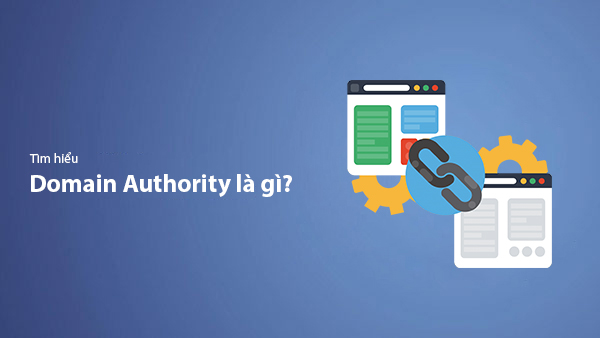
What is Domain Authority? 13-Step Guide to Improve DA Score for Your Website in 2025
Discover what Domain Authority is and its importance in SEO. A detailed guide on the 13-step process to effectively increase DA, from content research and technical optimization to building quality backlinks for a sustainable SEO strategy.
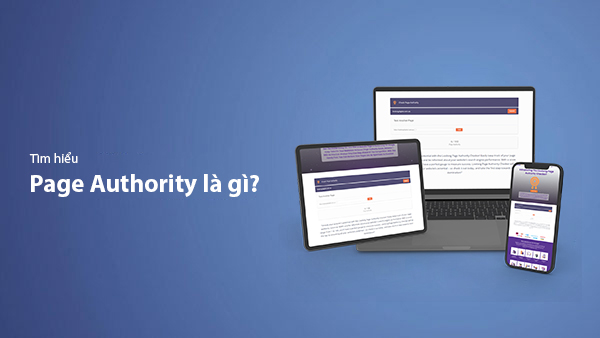
What is Page Authority? The Importance of Page Authority for SEO in 2025
Learn what Page Authority (PA) is and its role in SEO optimization to help improve your website's ranking on search engines in 2025.

What is Google Index? A Guide to 13 Ways to Speed Up Website Indexing in 2025
Discover what Google Index is and learn detailed guidelines on 13 effective ways to get your website indexed quickly and boost your SEO rankings on Google in 2025.
![What is Onpage SEO? 23+ Basic & Advanced Onpage Optimization Checklist [2025]](/blog-posts/seo-onpage/seo-onpage-thumb.jpg)
What is Onpage SEO? 23+ Basic & Advanced Onpage Optimization Checklist [2025]
Learn the concept of Onpage SEO and the 23+ basic to advanced Onpage optimization checklist to improve website quality and boost search rankings effectively.

